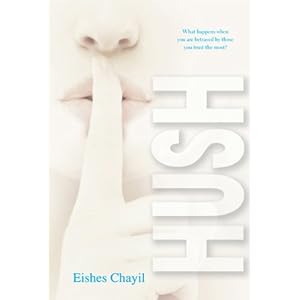
Hush reveals, rather than judges, a complex and fascinating world that remains an echo of its past, and illuminates the conflict between old age traditions and today's reality.

She begins to question everything about herself-her memories of the past and the beliefs of her sect.Ī richly detailed and nuanced book, one of both humour and depth, understanding and horror. Gittel never says anything about it, and so the book is about how she grapples with the silence.

'Despite my knowing all the words to the poem, I thought that the Eishes Chayil was demure and gentle, a woman with a perpetual smile, a starched apron, a warm cake in one hand, and a Tehillim in the other. Essentially, in Hush, Gittel witnesses the molestation of her best friend Devory by one of Devory’s family members. Skip to the beginning of the images gallery. Now as a teenager, Gittel is racked with guilt over the choices she made as a child, and those that were forced upon her by the community she once trusted. Hush is a first person story that alternates between the year 20. But even inaction has consequences, and sometimes they are deadly. For the first time in her life, there are no guidelines to tell her what to do, and the adults in her community try to persuade her that nothing happened. Judy Brown initially published under the pseudonym Eishes Chayil, Hush (New York: Walker & Company), 346. Then young Gittel witnesses an unspeakable act of abuse against her best friend Devory at the hands of a family member, an act that goes against everything she's ever been taught as a Jew.

Winner Blurb: After many years, Gittel finally knows why her friend. Inside the closed community of Borough Park, where most orthodox Chassidim live, the rules of life are very clear, determined by an ancient script written thousands of years before down to the last detail-and abuse has never been a part of it. Winner Description: Author: Chayil, Eishes.


 0 kommentar(er)
0 kommentar(er)
